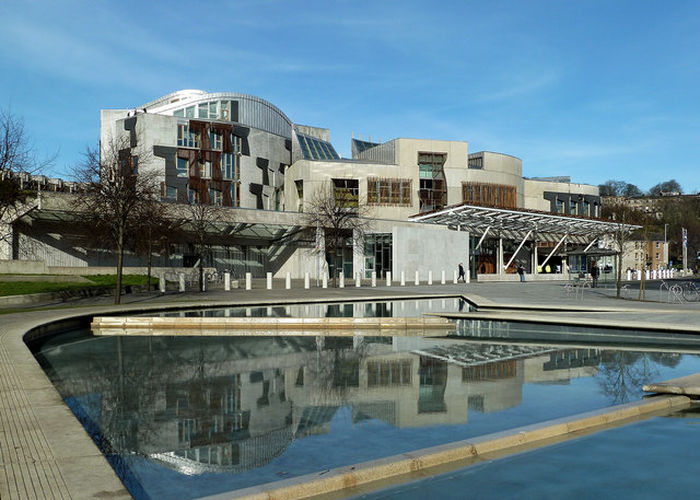“Will auld acquaintance be forgot?” The impact of Brexit on the case for Scottish independence
In light of last month’s Brexit deal, Ruairidh Maclean looks at the difficulties associated with the SNP’s Rejoin policy now that the UK has left the EU.

For years we were told “Brexit means Brexit”, but what does Brexit mean for Scotland now that a deal has been struck? For Nicola Sturgeon, speaking shortly after the result, Brexit was deemed "democratically unacceptable" because Scotland, a nation which voted Remain, was being forced out of the EU by English and Welsh votes.
In 2016, the SNP were elected on a manifesto positing that a change in material circumstances would justify a second independence referendum. Brexit was cited as one of these material changes. Fast forward five years, the SNP is now on course to win a landslide in May’s Holyrood elections, and there is sustained support for "Scexit" in the polls. Following Johnson’s unwanted Christmas gift of Brexit, many Scots are frantically searching for the receipt and endorsing Sturgeon’s calls for a second shot at independence.
This support requires caution. Brexit is an existential threat and complication to the independence movement. The journey from Brexit to SNP hegemony had bumps in the road, namely the 2016 Holyrood election that forced the SNP into a minority government, and the 2017 UK general election. I am not suggesting these elections were detrimental to the SNP. At that moment in time, Scottish voters opposed the SNP’s policy of a second EU referendum, and support for Scottish independence had not increased either.

The central problem faced by the SNP is its pro-EU stance. Sturgeon has never hidden her desire for an independent Scotland (iScotland) to rejoin the EU. Yet, the "Rejoin" position advocated by the SNP flags up a currency problem and a significant contradiction at the heart of its proposal for an independent Scotland.
Brexit is a threat to Scottish independence because, in building popularity among remain-voting Scots, the SNP puts itself in a position where the prospect of Scottish independence actually moves out of reach. This complexity arises from the problematic conditions entailed in the prospect of an independent Scotland (re)joining the EU. Applicant states are expected to join the euro, and the Sturgeon-established Sustainable Growth Commission advocates this too. Thus, Scotland’s structural deficit would be cut from 6% to 3% over ten years to create the requisite currency reserves to join the euro.
Cuts on this scale represent potentially a more destructive form of austerity than that implemented by the Conservatives since 2010. Joining the euro would also mean a shift of sovereignty from London to Frankfurt’s European Central Bank. This proposition does not command widespread support. Unsurprisingly, only 10% of Scots believe that an iScotland should join the single currency because it would cause years of limbo between sterling and the euro. With mortgages and personal debts already tied up in pound sterling for most Scots, who knows when Scotland will be ready to change?
The preferred option of the SNP is, for now, keeping pound sterling. In potential exit negotiations, an iScotland would be reliant on the UK’s goodwill. During a campaign led by a unionist Westminster government, seeking permission to keep the pound would leave Scotland hapless, at the mercy of the union it seeks to divorce from. Austerity, once more, would likely be required in this instance to build up the requisite currency reserves. Under any circumstances, it does not grant Scotland monetary sovereignty. The Growth Commission argues that this could serve as a temporary measure en route to a new Scottish currency, a proposal supported by only 13% of the Scottish electorate. What is clear is that SNP currency plans run contrary to conditions to euro membership and thus the return of Scotland to the EU.
"Independence is not a solution to poor SNP governance."
The most dangerous consequence of currency change, for the SNP, would be the risk of a hard border between an iScotland and the UK. If Scotland joins the EU while the UK diverges from it, there will surely be trade friction. If, as the SNP hope, a new Scottish currency can be created after using the pound, the choice then becomes a binary one: does Scotland choose seamless exchange with its neighbour, with which 60% of its current trade is carried out, or with a distant neighbour with which less than 20% of its trade is done?
These are fundamental policy obstacles to the creation of an independent Scottish state. They come against a backdrop of widening educational inequality and an increasing attainment gap. Local authorities are even more cash-strapped than their English counterparts, with unnecessary budget cuts of 7% inflicted on them by the SNP. Independence is not a solution to poor SNP governance.
If Brexit is proof of anything, it is that you can win a referendum with an insubstantial and contradictory economic argument. Independence is a bolder, more impactful step for Scotland than leaving the EU. The passing of the Brexit trade deal makes it harder to make the economic case for Scottish independence, an existential threat to the SNP’s project. None of the options are good, and none command popular support. The consequences, should Scotland secede without having resolved these problems, could define the history of an independent Scotland. As it takes its first, furtive steps towards an independent future, it could be toppled by the project’s original contradictions.
 News / Cambridge academics sign open letter criticising research funding changes22 February 2026
News / Cambridge academics sign open letter criticising research funding changes22 February 2026 News / Supporters protest potential vet school closure22 February 2026
News / Supporters protest potential vet school closure22 February 2026 News / University Council rescinds University Centre membership20 February 2026
News / University Council rescinds University Centre membership20 February 2026 News / Hundreds of Cambridge academics demand vote on fate of vet course20 February 2026
News / Hundreds of Cambridge academics demand vote on fate of vet course20 February 2026 News / Union cancels event with Sri Lankan politician after Tamil societies express ‘profound outrage’20 February 2026
News / Union cancels event with Sri Lankan politician after Tamil societies express ‘profound outrage’20 February 2026










